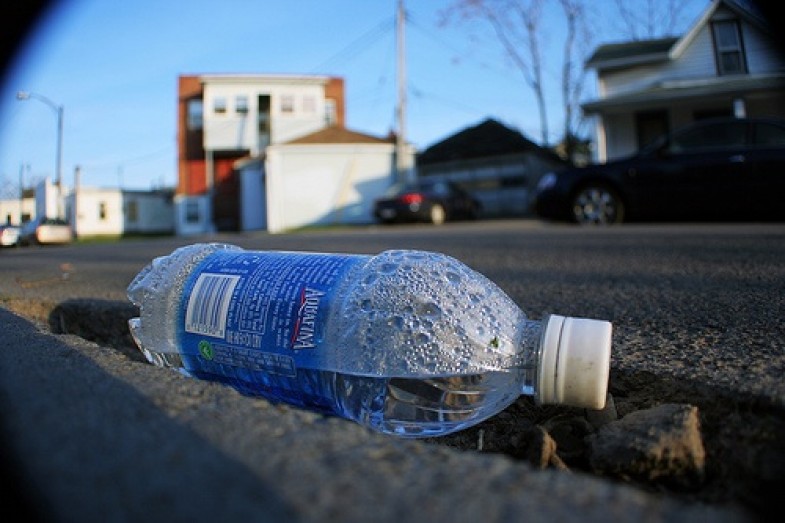The emerging commons movement reminds many people of environmentalism in its early days. In both cases, a familiar set of concerns is united into one broad cause under a new name.
Environmentalism addressed issues as varied as smog, roadside trash and wildlife conservation together in one movement to save the planet. The commons too stretches across many fields that people once considered separate: public spaces, internet democracy, climate change, economic justice.
One reason the environmental movement took off so dramatically in the early 1970s was that everyday citizens saw opportunities to become involved, even if it was something as simple as picking up litter or recycling their beer cans.

CC license, ND, NC by Derek Neuland from Flickr http://www.flickr.com/photos/derekneuland/2427047622/
The commons movement today needs a similar symbol: a practical action that everyone can adopt as sign of their commitment to protecting the commons.
We won’t have to look far—just such a symbol is all around us: plastic water bottles.
Millions of times each day people fork over a dollar or more to drink 12 or 16 ounces of what is usually tap water. That adds up to more garbage in the landfills and increased fossil fuels to manufacture the bottles and truck cases of H2O around the country (and world).
But on top of the environmental costs, it represents an enclosure of the water commons. We are paying a big corporation to provide us with something that rightly belongs to us already.
The bottled water business plays on fears of impure drinking water from public utilities, although many studies have shown tap water to be as safe or safer than bottled. Indeed, Richard Girard of the Ottawa, Ontario-based Polaris Institute notes in E magazine (May/June 2008) that water bottlers aren’t even subject to the same strict oversight as municipal water systems.
Booming bottled water sales could eventually lead to lessening concern about the quality of tap water, in the same way that a proliferation of cell phones among the affluent has made pay phones hard to find for the poor.
A grassroots citizens’ campaign is underway to get people to switch back to tap water, according to the thorough report in the May/June 2008 E Magazine. Among the recent developments:
San Francisco mayor Gavin Newsom banned all city departments from contracting to buy bottled water for employees and vending machines. Instead he provided large water coolers full of fresh, pure water from the Sierra mountains ( i.e. San Francisco tap water). Chicago, Salt Lake City and other towns adopted similar policies.
The United Church of Canada suggests that its 3 million members stop serving bottled water at church meetings and events.





